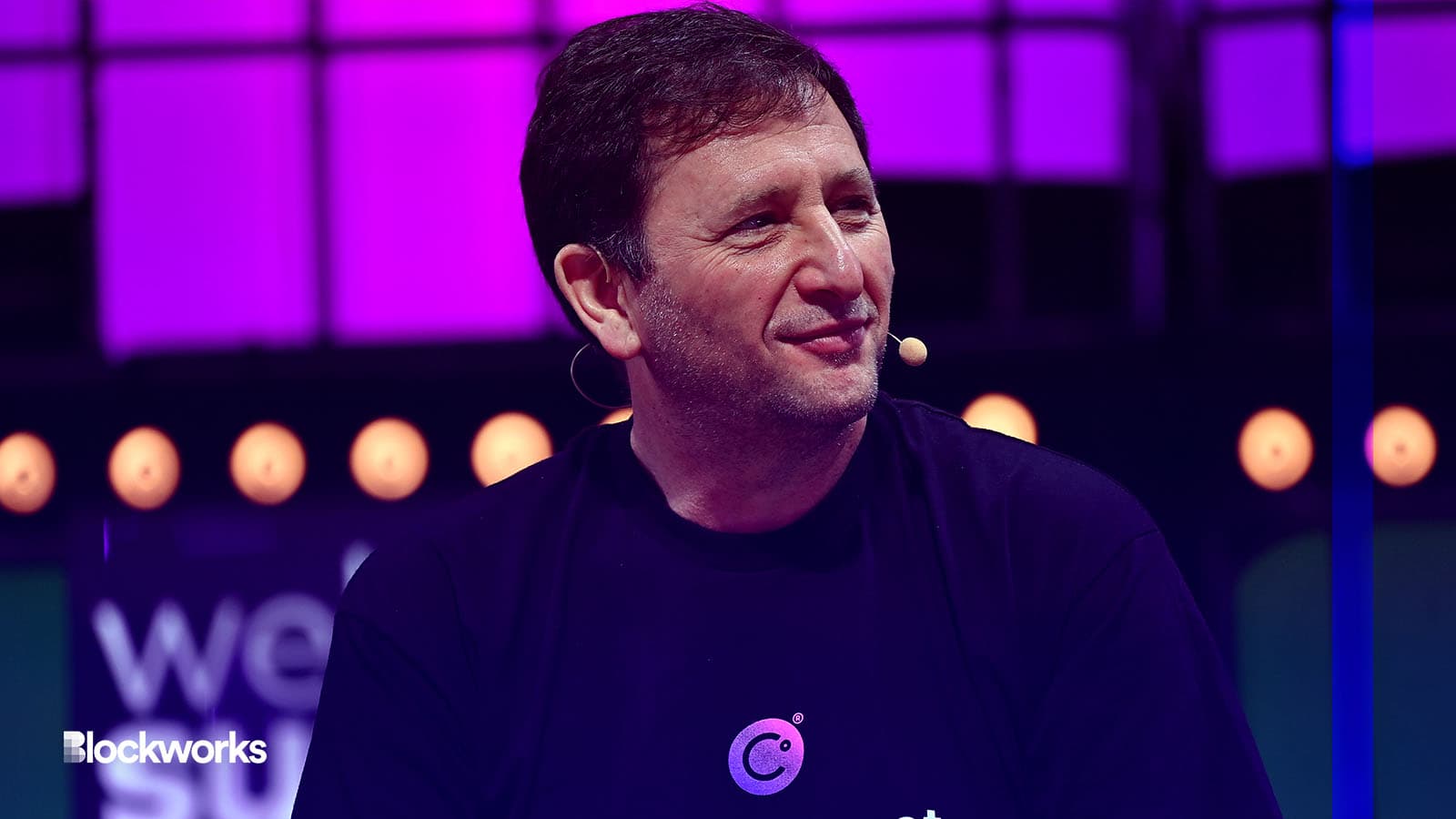Judge gives DOJ until October to ‘make discovery’ in Mashinsky case
The judge, in new court filings, said the Oct. 3 conference allows “adequate time for the Government to make discovery”

Web Summit, CC BY 2.0, via Wikimedia Commons, modified by Blockworks
US prosecutors have asked the court overseeing the Department of Justice’s case against former Celsius CEO Alex Mashinsky for additional time to produce evidence.
In court documents filed Tuesday, Judge John G. Koeltl said the next conference in the case will be held on Oct. 3 “to assure the effective assistance of counsel and to allow adequate time for the Government to make discovery and for the defense to review it, and because of the volume of discovery and the complexity of the case.”
He also ruled that the court “prospectively excludes the time from today, July 25, 2023, until October 3, 2023, from Speedy Trial calculations.”
Generally, Speedy Trial calculations ensure that a trial begins 70 days “from the date the information or indictment was filed, or from the date the defendant appears before an officer of the court in which the charge is pending, whichever is later.”
A date for the trial has yet to be set.
On Monday, the judge granted Mashinsky an additional week because his team claimed he “requires additional time to satisfy the remaining obligations” of his bail.
The DOJ unsealed an indictment against Mashinsky on July 13. The department alleges that Mashinsky “orchestrated a scheme to defraud customers of Celsius Network” together with Roni Cohen-Pavon, the former chief revenue officer.
According to the indictment, Mashinsky allegedly made false statements, manipulated CEL — the native token of Celsius — and attempted to orchestrate “ a scheme to defraud investors.”
Mashinsky was released on a $40 million bond on July 14. One of his lawyers, Jonathan Ohring, told Blockworks that Mashinsky “vehemently denies the allegations brought yesterday. He looks forward to vigorously defending himself in court against these baseless charges.”
The SEC, CFTC and FTC also filed suits against Mashinsky and Celsius, alleging that customers were “duped” into making crypto deposits on Celsius, and falsely claimed that the now-bankrupt crypto lender was a modern bank.
“In order to meet the returns promised to its customers, Celsius engaged in increasingly risky investment strategies, including the extension of millions of dollars in uncollateralized loans and millions of dollars in unregulated, risky decentralized finance agreements,” the CFTC said.
Get the news in your inbox. Explore Blockworks newsletters:
- The Breakdown: Decoding crypto and the markets. Daily.
- 0xResearch: Alpha in your inbox. Think like an analyst.






